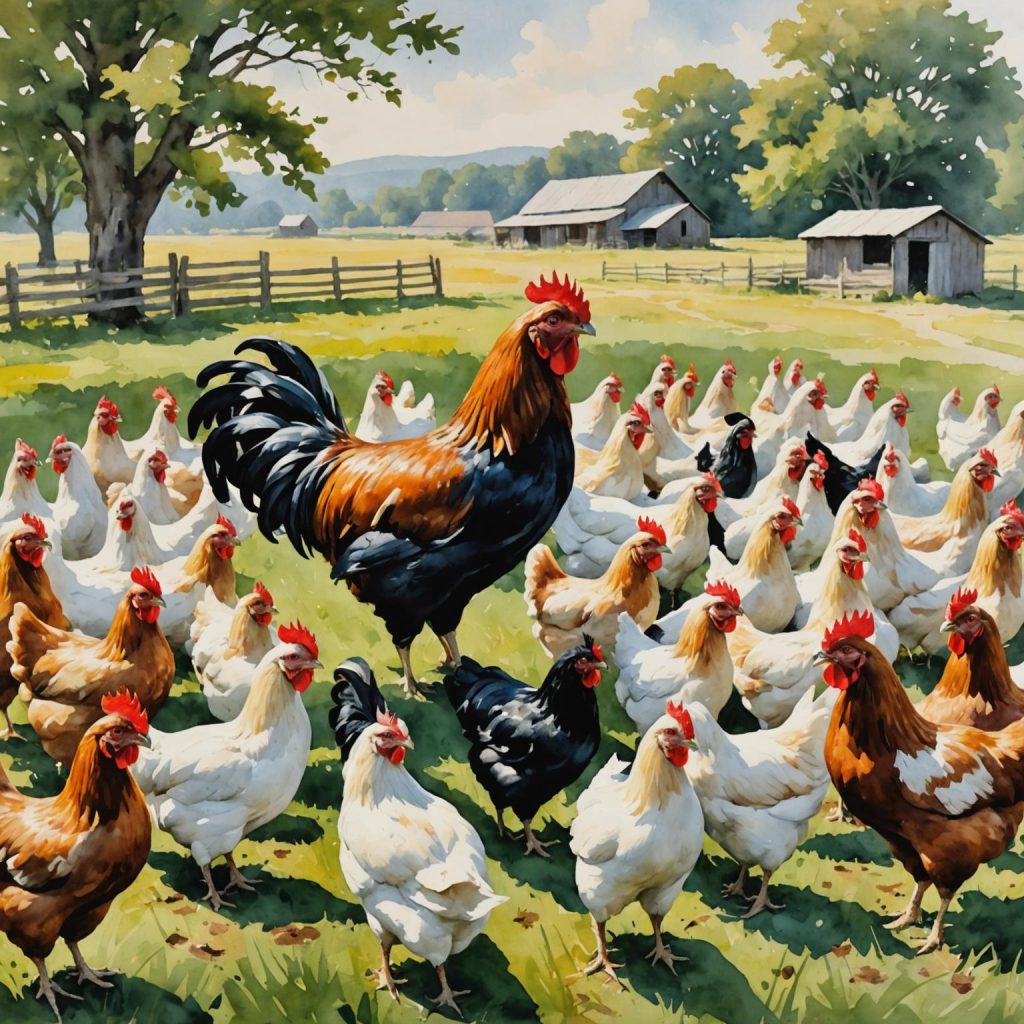When it comes to starting a chicken coop, there are several initial setup costs to consider. First and foremost, you will need to invest in a suitable coop and run for your chickens. This can range from a simple DIY coop to a more elaborate pre-made structure, depending on your budget and the number of chickens you plan to keep. Additionally, you will need to purchase feeders, waterers, nesting boxes, and bedding materials to ensure your chickens are comfortable and well-cared for. Other initial setup costs may include fencing to secure the coop and run, as well as any necessary tools and equipment for building and maintaining the coop.
In addition to the physical setup, you will also need to consider the cost of purchasing your initial flock of chickens. The price of chickens can vary depending on the breed and age, so it’s important to do your research and budget accordingly. Lastly, you may also need to invest in basic supplies such as feed, supplements, and healthcare products to ensure your chickens are healthy and thriving. Overall, the initial setup costs for starting a chicken coop can vary depending on the size and scale of your operation, but it’s important to budget for these expenses to ensure a successful start.
Table of Contents
Ongoing Expenses
Once your chicken coop is up and running, there are several ongoing expenses to consider. One of the most significant ongoing expenses is feed. Chickens require a balanced diet to stay healthy and productive, so it’s important to budget for regular purchases of feed. Additionally, you may also need to invest in supplements such as calcium or grit to ensure your chickens are getting all the nutrients they need. Another ongoing expense is bedding materials for the coop, as well as regular cleaning supplies to maintain a clean and sanitary environment for your chickens.
In addition to feed and bedding, you will also need to budget for regular maintenance of the coop and run. This may include repairs, replacements, or upgrades to ensure the safety and comfort of your chickens. Other ongoing expenses may include veterinary care, pest control products, and any other necessary supplies to keep your chickens healthy and happy. Overall, it’s important to consider these ongoing expenses when budgeting for your chicken coop to ensure that you can provide the best care for your flock without breaking the bank.
Feed and Supplements
When it comes to feeding your chickens, there are several options to consider. The most common type of feed for chickens is a commercial feed that is specifically formulated for their nutritional needs. This feed typically comes in pellet or crumble form and is designed to provide a balanced diet for your flock. Additionally, you may also choose to supplement your chickens’ diet with kitchen scraps, grains, or other natural foods to provide variety and additional nutrients.
In addition to feed, there are also several supplements that can benefit your chickens’ health. One common supplement is calcium, which is essential for egg production and shell quality. You may also choose to provide grit, which helps chickens digest their food, or probiotics to support their digestive health. It’s important to research and consider the specific needs of your flock when choosing feed and supplements to ensure they are getting all the nutrients they need to thrive.
Coop and Run Maintenance
Maintaining a clean and well-kept coop and run is essential for the health and well-being of your chickens. Regular maintenance tasks may include cleaning out bedding, removing waste, and ensuring that the coop is free from pests and parasites. Additionally, you may need to repair or replace any damaged or worn-out parts of the coop or run to ensure that it remains secure and comfortable for your flock.
In addition to regular cleaning and repairs, it’s also important to consider the seasonal maintenance needs of your coop and run. This may include insulating the coop in winter, providing shade in summer, or ensuring that the run is secure from predators year-round. Overall, maintaining a clean and well-kept coop and run is an ongoing task that requires time, effort, and potentially some additional expenses for supplies or repairs.
Healthcare and Veterinary Costs
Just like any other pet or livestock animal, chickens may require veterinary care from time to time. It’s important to budget for potential healthcare costs when starting a chicken coop to ensure that you can provide the best care for your flock. Common healthcare expenses may include vaccinations, deworming treatments, or treatment for common ailments such as respiratory infections or parasites.
In addition to potential veterinary costs, it’s also important to consider preventative healthcare measures for your flock. This may include providing a clean and sanitary environment, regular health checks, and a balanced diet with necessary supplements. By investing in preventative healthcare measures, you can potentially reduce the risk of more serious health issues down the line.
Unexpected Expenses
Despite careful planning and budgeting, unexpected expenses can arise when keeping a chicken coop. This may include sudden repairs or replacements for the coop or run, unexpected veterinary costs for illness or injury, or other unforeseen expenses related to caring for your flock. It’s important to have a financial cushion or emergency fund set aside for these unexpected expenses to ensure that you can provide the best care for your chickens without financial strain.
In addition to unexpected expenses related to the care of your flock, it’s also important to consider potential costs related to regulations or legal requirements for keeping chickens in your area. This may include permit fees, zoning requirements, or other potential costs associated with complying with local laws and regulations. By being prepared for unexpected expenses, you can ensure that you are able to provide the best care for your flock without financial stress.
Long-term Budgeting
When it comes to long-term budgeting for a chicken coop, it’s important to consider the ongoing expenses and potential future costs associated with caring for your flock. This may include budgeting for regular feed and bedding purchases, as well as potential veterinary costs or unexpected expenses that may arise over time. Additionally, it’s important to consider potential long-term investments such as upgrades or expansions to the coop or run as your flock grows.
In addition to long-term expenses related to caring for your flock, it’s also important to consider potential income from egg sales or other products from your chickens. By factoring in potential income from your flock, you can better plan for long-term budgeting and potentially offset some of the ongoing expenses associated with caring for your chickens.
In conclusion, starting and maintaining a chicken coop requires careful planning and budgeting to ensure that you can provide the best care for your flock without financial strain. By considering initial setup costs, ongoing expenses, feed and supplements, coop and run maintenance, healthcare and veterinary costs, unexpected expenses, and long-term budgeting, you can better prepare for the financial responsibilities of keeping a chicken coop. With careful planning and budgeting, you can create a successful and sustainable environment for your flock while ensuring that you are able to provide the best care without breaking the bank.
Meet Walter, the feathered-friend fanatic of Florida! Nestled in the sunshine state, Walter struts through life with his feathered companions, clucking his way to happiness. With a coop that’s fancier than a five-star hotel, he’s the Don Juan of the chicken world. When he’s not teaching his hens to do the cha-cha, you’ll find him in a heated debate with his prized rooster, Sir Clucks-a-Lot. Walter’s poultry passion is no yolk; he’s the sunny-side-up guy you never knew you needed in your flock of friends!







